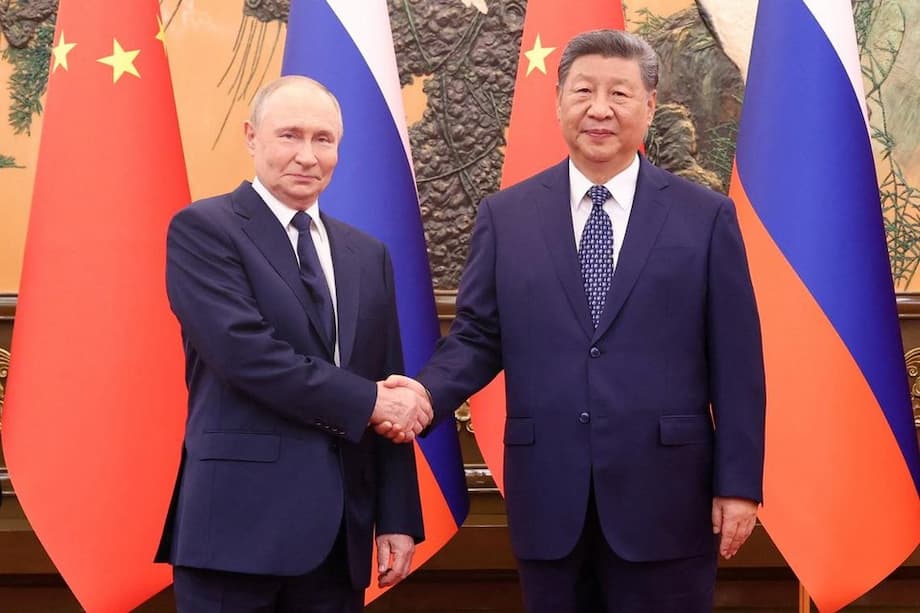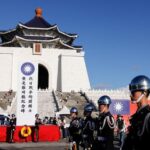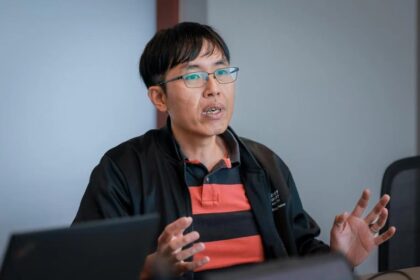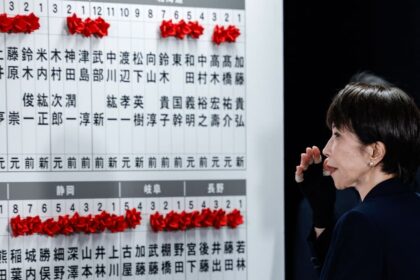A candid exchange during Beijing’s show of strength
China’s Victory Day parade in Beijing delivered a surprise that was not on the official program. As Xi Jinping and Vladimir Putin walked toward the Tiananmen viewing platform with North Korea’s Kim Jong Un, a live television feed carried a private conversation that touched on organ transplants, living to 150, and even the idea of immortality. The remarks, picked up by a microphone and translated on the fly, briefly pulled the spectacle away from military hardware and statecraft and into a discussion that straddled science, ambition, and power. Both leaders are 72, both have extended their time in office, and both have signaled plans to steer their countries for years to come. Hearing them discuss extreme longevity gave the massive pageant an unexpectedly personal dimension.
The parade itself was designed to project strength and unity. It marked the 80th anniversary of the end of World War II and drew more than 50,000 spectators in Tiananmen Square. Chinese state television showed troops and cutting edge gear, including hypersonic missiles and naval drones. It was also a stage for diplomacy, with a group photo of more than two dozen visiting leaders and the first public appearance together of Xi, Putin, and Kim. Their presence underscored a deepening alignment challenging Washington and its partners, a message later reinforced in Xi’s address warning that the world faced a choice of peace or war.
The audience for the moment was vast. China’s radio and television administration said the state broadcaster’s livestream reached 1.9 billion online views and more than 400 million on television. Cameras tracked the leaders as they moved toward the rostrum, where the audio briefly carried fragments of their conversation before the feed cut to a wide shot and the sound faded. About half a minute later, the trio reappeared on screen as they climbed the steps to the platform, the audio again focused on the parade. Yet by then, the hot mic had already captured a headline.
What the hot mic recorded
Interpreters walking with the delegations made the leaders’ comments audible to viewers. Putin’s translator, addressing Xi in Mandarin, can be heard sketching a future shaped by biology and surgery. The phrasing, carried on Chinese state television and cited by multiple outlets, echoed common talking points from longevity enthusiasts, but it sounded far less usual when voiced at the side of China’s Communist Party leader.
After the interpreter’s introduction, Putin’s translator framed the idea this way:
“Biotechnology is continuously developing. Human organs can be continuously transplanted. The longer you live, the younger you become, and you can even achieve immortality.”
Xi, off camera at that moment, replied in Chinese with a forward looking prediction that has circulated among life extension researchers and public futurists:
“Some predict that in this century humans may live to 150 years old.”
Kim, walking with them, smiled and appeared to listen, though it was not clear whether he heard a translation of the exchange. Putin’s own voice was not cleanly captured in Russian on the feed. Later that day, however, Putin told reporters in Beijing that the conversation had indeed taken place and that advances in medicine could push active life far beyond the current norm.
Asked about the remarks, Putin said the two leaders had discussed long life as they headed to the parade, adding that modern treatment and surgery linked to replacing organs offered hope for longer healthy years. He described the promise in general terms:
“Modern means of health improvement, medical means, even surgical ones related to organ replacement, they allow humanity to hope that active life will continue differently than it does today.”
Russian and Chinese officials did not immediately respond to questions about the exchange. The video of the moment circulated widely, reinforced by news outlets that translated the fragments captured on the live broadcast.
Longevity science, organ transplants and what is real
Longevity research has moved from fringe fascination to serious science in recent years. Laboratories explore ways to slow cellular aging, repair DNA damage, clear older malfunctioning cells, improve immune resilience, and study how diet and drugs affect lifespan. Companies and state institutes test tissue engineering, stem cell therapies, and even bioprinting. The Russian state company Rosatom said last year it was developing technology to print human organs. Interest is rising in China and Russia, as in the United States and Europe, where venture capital and public grants back work on so called hallmarks of aging.
Organ transplantation, however, sits in a different category from most longevity research. Transplants save lives today by replacing failing organs like kidneys, hearts or livers. They are not a fountain of youth. Recipients need strong immunosuppressive medicines to prevent rejection. Those medicines carry risks, including infections and certain cancers. Donor organs are scarce, so access is tightly rationed by medical urgency and compatibility. While a successful transplant can add years of healthy life, repeatedly swapping out organs is not a currently viable path to extreme lifespan.
There is a more basic barrier. The brain is central to identity and cognition, and it ages along with the rest of the body. Modern medicine has no way to replace the brain or reverse its complex aging. That is why scientists who study aging speak in terms of improved healthspan, the years lived in good health, rather than immortality. Better cardiovascular care, cancer screening, and safer surgeries have helped people live longer on average. Yet claims of living many decades beyond the oldest verified human age of 122 remain speculative.
Medical specialists who saw the clips from Beijing pushed back on the notion that transplants could lift people toward immortality. Dr. James Markmann, a transplant surgeon and leader within the American Society of Transplant Surgeons, told Fox News Digital that the science does not support what the translators said the leaders were discussing.
“There is no scientific evidence that organ transplants promote immortality or that humans could realistically reach 150 years of age through transplants.”
Dr. Markmann pointed to urgent issues that exist right now: the shortage of donor organs worldwide, long waiting lists, and inequities in access, from matching and logistics to affordability. He argued that leaders should steer attention toward making sure transplants save as many current patients as possible, rather than toward hypothetical scenarios about limitless replacement parts.
Research programs in Russia and China, like those elsewhere, do include areas sometimes cited in longevity debates. Russia has invested in projects tied to cellular rejuvenation and neurotechnology, while China has made biotechnology a strategic economic priority. Both countries also support research in 3D tissue printing. None of that work, however, bridges the gap between lab progress and the concept of staying young through endless organ swaps.
Politics behind the small talk
The parade conversation resonated in part because of who was talking. Xi has been in power for 13 years and in 2018 he oversaw the removal of presidential term limits, which opened the door to extended rule. Putin has led Russia for a quarter century and engineered a constitutional change in 2020 that allows him to stay in office until 2036. Both are 72, and neither has signaled plans to step aside soon or named a clear successor. Hearing them weigh the idea of living to 150 made for rare candor about a subject that shadows any long tenure: time.
Longevity strategies are also public policy in both countries. Putin has pressed health authorities to raise life expectancy, a goal repeated in national plans and regional targets. People who have met him describe a leader fixated on health routines, a focus that showed during the Covid 19 pandemic when meetings often required lengthy quarantines. In China, leaders receive extensive medical care, and recent history shows they can live long lives with that support. Deng Xiaoping died at 92, and Jiang Zemin died at 96. Xi has framed elder care and healthy aging as central to social stability, repeating the traditional wish that people live to a ripe age in good health.
There is also a science politics angle. State companies and allied research institutes in Russia have touted organ printing and regenerative medicine. Reports have linked senior Moscow figures to aging research agendas, sometimes wrapped in talk of resilience and national strength. China has flooded biotechnology with investment and policy support, seeking domestic breakthroughs and a lead in fields from gene editing to cell therapies. That competition sets the backdrop for any talk of radical lifespan gains, even if the current science falls short of the sweeping claims heard on the parade route.
A message to Washington and allies
The Beijing pageant was more than a commemoration. It was a high profile display of hardware and alignment that tracked with China’s push to present an alternative vision to the US led order. The gathering followed a summit that brought more than 20 leaders from non Western countries to the capital, including India’s prime minister. Xi and Putin used the visit to sign more than 20 agreements touching energy and artificial intelligence. They also announced plans for a major new gas pipeline from Russia to China, without disclosing how it would be financed or what price China would pay for the gas.
The parade featured new systems meant to highlight China’s reach at sea and speed in the air. Cameras lingered on formations and vehicles meant for modern wars, while Xi’s speech placed the day in a stark frame. He told the crowd the world faced a choice of peace or war. The optics were carefully managed, from the leaders’ walk to the rostrum to the cutaways when the audio of their private conversation began to carry too well. By the end of the broadcast, the headline image was both the military procession and the odd moment in which two powerful men appeared to weigh the limits of the human body.
Ethics and the organ economy
Behind the science talk lies a global system that struggles to meet demand. Tens of thousands of patients wait for organs in the United States alone, and shortages are common worldwide. Doctors face hard choices about who receives a transplant and when. Improvements in post operative care, matching, and anti rejection drugs have made outcomes better, yet the central constraint remains the same: a lack of suitable organs.
Ethical debates the world over hinge on access, equity, and consent. China has long faced accusations from activists and researchers that its transplant system used organs from executed prisoners. Beijing says it ended that practice in 2015 and has moved to a volunteer donation model. International medical groups continue to call for transparency and oversight in every country where transplant volumes are high. Russia and China both present their programs as modernizing and life saving. Critics ask for data and independent verification.
That bigger picture is why specialists like Dr. Markmann argue that hype around immortality can distract from urgent work. Policies that improve donor registration, strengthen cross border organ sharing agreements, and finance equitable transplant care would save lives that are at risk today. Technologies like machine perfusion, which keep organs viable for transport, and better matching algorithms can expand the pool of usable organs. Those advances could raise healthspan for many people. They do not promise ageless lives.
Why this quiet aside matters
Leaders often talk about science as industry policy or national prestige. Rarely do they discuss science as it relates to the length of their own lives while a camera is rolling. That is why the hot mic clip ricocheted from social media to traditional news so quickly. It gave the public a clear line into what Xi and Putin find plausible, or at least discussable, about the future. It also showed how longevity has moved into mainstream conversation in capitals from Beijing to Moscow and Washington.
There is a risk in that shift. When heads of state talk about immortality, it can blur the line between what labs can deliver and what storytellers imagine. That is not a reason to shrink ambition. It is a reason to keep claims anchored in peer reviewed evidence and clinical practice. The science of aging is moving fast. Policy and public communication need to keep pace with care.
For now, the most striking part of the moment is the contrast. On one side, immense state power and modern weapons rolled through one of the world’s most famous squares. On the other, two leaders at the height of their authority mused about bodies that never fail. The parade ended. The questions their remarks raised about medicine, ethics, and power will keep moving.
Key Points
- A live television feed in Beijing captured Xi Jinping and Vladimir Putin discussing organ transplants, living to 150, and immortality during China’s Victory Day parade.
- Putin’s translator said biotechnology could enable continuous organ transplants and even immortality, and Xi replied that some predict lifespans could reach 150 years this century.
- Putin later confirmed the exchange, saying modern medical and surgical methods tied to organ replacement offer hope for longer active life.
- The parade featured hypersonic missiles and naval drones and drew more than 50,000 spectators; Chinese authorities said the broadcast garnered 1.9 billion online views and over 400 million on television.
- Xi, Putin, and Kim Jong Un appeared together publicly for the first time, signaling tighter alignment among the three governments.
- China hosted more than 20 visiting leaders and announced over 20 deals with Russia covering energy and artificial intelligence, plus a plan for a new gas pipeline without financing or price details.
- Medical experts countered the immortality talk, saying transplants save lives but do not reverse aging, and that the science does not support living to 150 through organ replacement.
- Organ shortages, the need for lifelong immunosuppression, and the impossibility of replacing the brain limit any transplant based approach to extreme longevity.
- Ethical debates persist around transplant systems and equitable access; Beijing says it ended the use of organs from executed prisoners in 2015, a claim that outside groups continue to scrutinize.
- The hot mic moment highlighted how longevity science has entered high level political conversation, even as the medical reality remains far from the claims heard on the parade route.












